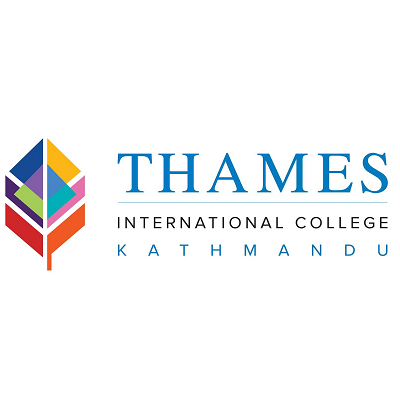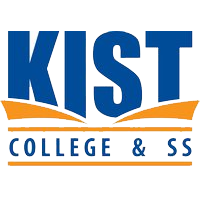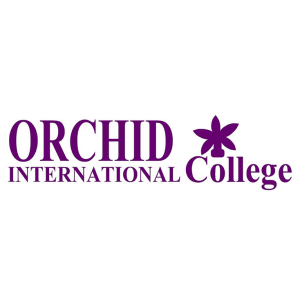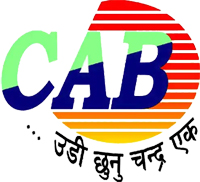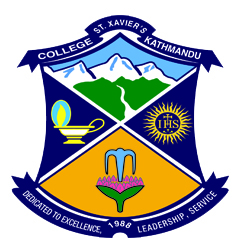Overview
BITM at Kantipur College of Management and Information Technology (KCMIT)
The Bachelor of Information Technology Management (BITM) at KCMIT runs under Tribhuvan University (TU), Faculty of Management. Students study programming, databases, networks, information systems, and core management subjects across eight semesters.
The program uses TU’s semester rules, CMAT entrance, internal assessment, and end-semester examinations.

Overview
BITM at KCMIT connects computing and management in a single undergraduate degree under TU. The curriculum covers computing, informatics, business fundamentals, and decision-making skills. Your academic path begins with programming and core management courses, then expands into systems analysis, data-centric subjects, and business applications. The degree targets students who want a strong base in software and business process understanding within Nepal’s recognized university system.
Affiliation: Tribhuvan University, Faculty of Management
Degree title: Bachelor of Information Technology Management (BITM)
Program length: Four years, eight semesters
Total credits: 126 credit hours
Delivery: Semester model with internal and external evaluation under TU rules
Highlights
Curricular focus: Computing fundamentals, programming, databases, networking, operating systems, information systems for business, analytics, cybersecurity, plus management, finance, marketing, research, and strategy.
Semester rhythm: Foundational programming and math early; systems, web, and databases mid-way; analytics, cloud, e-commerce, and electives in later semesters; project and internship in the final year.
Admission route: CMAT entrance conducted by TU Faculty of Management with sections on verbal, quantitative, logical reasoning, and general awareness. A minimum of 40% is required to qualify for the interview.
Assessment: Internal 40% and end-semester 60%; internal “B” (GPA 3.00) required to qualify for the external exam.
Internship: Eight weeks in the final semester with report and presentation; minimum “C” is required.
Attendance: At least 80% across classes and required academic activities to sit the semester exam.
Curriculum Details
BITM at KCMIT follows the official curriculum issued by TU’s Faculty of Management. The structure totals 126 credit hours across six components.
Credit distribution:
-
Management courses: 30 Cr
-
Analytical and support courses: 18 Cr
-
Information technology and computing: 66 Cr
-
Electives: 6 Cr
-
Project: 3 Cr
-
Internship: 3 Cr
Key subjects by area (sample):
-
Computing: C programming, Java, Python, digital logic, microprocessors, web programming I & II, data structures and algorithms, networking, operating systems, cybersecurity, AI, data warehousing and mining, business data analytics, cloud, e-commerce.
-
Management & business: foundations of management, organizational behavior & HRM, accounting, cost and management accounting, marketing, corporate finance, business environment, operations management, strategic management.
-
Quantitative & support: mathematics, statistics, business communication, research methods, sociology for business.
-
Electives (examples): financial technology, system and network administration, foundation of data science, software project management, mobile programming; advanced networking, database administration, machine learning, security management, digital governance.
Semester snapshot:
-
Sem 1: Intro to computing, C programming, English I, foundations of management, basic mathematics.
-
Sem 2: Digital logic, Java, discrete structures, business communication, OB & HRM.
-
Sem 3: Microprocessor, web I, DBMS, financial accounting, business statistics.
-
Sem 4: Web II, data structures, networking, Python, economics for business, cost & management accounting.
-
Sem 5: Operating systems, IS for business, AI, cybersecurity, marketing.
-
Sem 6: Data warehousing & mining, software engineering & systems analysis, IT innovation & entrepreneurship, corporate finance, business environment, research methods.
-
Sem 7: Sociology for business, operations management, strategic management, elective I, project.
-
Sem 8: Business data analytics, cloud computing, e-commerce & digital marketing, elective II, internship.
Objectives
BITM aims to prepare graduates who can build and maintain information systems for real organizational problems, work with object-oriented methods and data management, combine IT with managerial skills, and progress to postgraduate study in information management. The objectives are explicitly listed in TU’s official document.
Scope
Graduates from KCMIT’s BITM enter roles that link software practice and business process understanding. Common destinations include banking and financial services (MIS, reporting, basic analytics), software and web development, QA/testing, system support, IT administration, and junior product or project roles in service firms and startups. The scope benefits from the blend of IT coursework and management subjects in the curriculum.
Learning Outcomes
Students learn to write and reason about code across C, Java, and Python. Students work with relational databases and web stacks, manage operating systems and networks at a practical level, and study security, analytics, and cloud basics. Graduates read financial and operational information, prepare reports, and present findings based on research methods taught in the program. The final internship and project connect classroom learning with workplace tasks.
Skill Development Modules
Technical skills: Programming, database design and queries, networking fundamentals, operating systems, cybersecurity basics, applied AI and analytics, data warehousing concepts.
Business skills: Accounting, finance, marketing, business environment in Nepal, operations, strategy.
Research & communication: Business research methods, business communication, report writing, presentations, and seminar work.
Project & internship: Individual project (3 Cr) and an eight-week internship (3 Cr) build delivery discipline, documentation practice, and presentation confidence.
Teaching Methodology
TU lists a mix of class lectures, group discussions, case studies, guest lectures, role play, research work, individual and group projects, assignments, and term papers. Faculty prepare a course outline at the start of each semester with required texts and references. KCMIT conducts these activities in step with TU’s plan and semester calendar.
Admission Requirements
Minimum qualification: Completion of 10+2, PCL, or equivalent from a recognized board. Applicants need minimum grade D in theory and C in practical for each subject with CGPA 1.8+, or second division in 10+2/PCL, and must complete the application process.
Entrance test: Eligible applicants sit CMAT conducted by TU Faculty of Management. The test includes verbal ability, quantitative ability, logical reasoning, and general awareness. The exam has 100 objective questions (25 per section). Applicants must secure at least 40% in CMAT to qualify for the interview. Shortlisted candidates face an interview for final selection.
Campus location for queries: KCMIT operates in Mid-Baneshwor, Basuki Marg, Kathmandu; the college website lists contact details for admissions.
Evaluation and Graduation Rules
Internal and external split: Internal assessment carries 40%; end-semester examination carries 60%. The semester examinations are conducted by TU Faculty of Management.
Internal threshold: Students need a minimum grade “B” (GPA 3.00) in internal evaluation of each subject to qualify for the semester examination.
Attendance: A minimum 80% attendance across academic activities is required to sit the exam.
Graduation: Students must successfully complete 126 credits with aggregate CGPA 3.00, including Project (3 Cr) and Internship (3 Cr). Program completion must occur within seven years from registration.
Credit transfer: TU permits credit transfer from recognized universities offering similar programs, subject to university rules.
Career Opportunities
Graduates move into roles such as junior software developer, web developer, QA/test associate, support engineer, MIS/reporting assistant, database support, network support, or business analyst trainee. Banking and service firms in Nepal value candidates who can read process requirements, write queries, and present clear updates to non-technical teams. Electives like Financial Technology, Machine Learning, Database Administration, or Security Management help you match job interests with focused modules during the final year.
Scholarships and Financial Aid
KCMIT communicates scholarship categories and seat counts during each admission cycle. Students usually see merit-based recognition linked to semester performance or university distinctions. Applicants should request the latest signed notice from the KCMIT office for coverage, continuation rules, and deadlines, as these change by year. Program rules on evaluation and progression remain fixed under TU.
Why Choose BITM?
Recognition: TU-affiliated BITM yields a nationally recognized degree in computing and management.
Balanced plan: Programming, systems, and data courses run alongside management and research modules, which supports both tech and business roles.
Clear rules: Entrance, attendance, assessment, and graduation standards are stated in official documents, giving you predictable milestones across eight semesters.
Applied finish: A project and an eight-week internship turn coursework into documented outputs that employers can review.
Conclusion
BITM at KCMIT adheres to TU Faculty of Management’s curriculum and quality controls. Students gain hands-on computing skills and essential management knowledge through a structured, semester-wise path. The program prepares graduates for early technical roles and process-oriented positions in Nepal’s service and technology sectors, while keeping a path open for postgraduate study. For dates, CMAT registration, and current scholarship notices, contact KCMIT and follow TU Faculty of Management updates.
FAQ
1) What is the total credit requirement for BITM?
126 credits across management, analytical/support, IT and computing, electives, project, and internship.
2) What attendance is required to appear in the semester exam?
Answer: At least 80% across classes and required activities.
3) What internal grade is needed to qualify for the external exam?
Minimum internal B (GPA 3.00) in each subject.
4) What is the CMAT pattern and qualifying mark?
Four sections—verbal, quantitative, logical reasoning, and general awareness—100 questions total; minimum 40% to qualify for the interview.
5) How long is the internship and what is the passing grade?
Eight weeks in the final semester; minimum Grade C is required.
6) Can credits be transferred from another university?
Yes, subject to TU rules on recognized institutions and similar programs.
7) Where can I confirm KCMIT’s address and contacts for admissions?
The KCMIT website lists Mid-Baneshwor, Basuki Marg, Kathmandu and contact details on its contact page.


